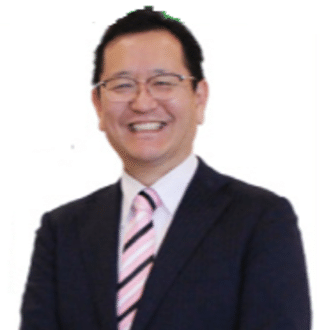
「それがマガノミクスだ」:トランプが貿易でアメリカをどこへ導こうとしているのか/FT要約
‘That is Maganomics’: where Trump is taking America on trade/summary
「それがマガノミクスだ」:トランプが貿易でアメリカをどこへ導こうとしているのか/要約
Trump’s Trade Policies and Maganomics: A Shift in Economic Strategy
トランプ大統領の貿易政策とマガノミクス:経済戦略の転換
In 2018, Peter Navarro, then a senior adviser to President Donald Trump, promoted protectionist trade policies through a report emphasizing the dangers of U.S. reliance on foreign supply chains. Navarro’s dismissal of free-market principles, epitomized by economist David Ricardo, reflected Trump’s broader skepticism toward globalization. This shift marked a break from the neoliberal consensus that dominated U.S. policy since the late 20th century.
2018年、当時ドナルド・トランプ大統領の上級顧問だったピーター・ナバロ氏は、米国の外国サプライチェーンへの依存の危険性を強調した報告書を通じて保護貿易政策を推進した。経済学者デビッド・リカードに象徴される自由市場原理をナバロ氏が否定したことは、グローバル化に対するトランプ大統領の幅広い懐疑主義を反映していた。この転換は、20世紀後半から米国の政策を支配してきた新自由主義的コンセンサスからの離脱を意味した。
Historically, free trade advocates argued that open markets benefited all nations by fostering specialization and economic efficiency. However, Navarro and Trump rejected this view, blaming globalization, particularly China’s entry into the WTO, for U.S. job losses and economic stagnation. Navarro argued that China’s practices—intellectual property theft, state capitalism, and currency manipulation—created unfair trade conditions, rendering Ricardo’s theories obsolete.
歴史的に、自由貿易の支持者は、自由市場は専門化と経済効率を促進し、すべての国に利益をもたらすと主張してきた。しかし、ナバロ氏とトランプ氏はこの見解を否定し、グローバル化、特に中国のWTO加盟が米国の雇用喪失と経済停滞の原因であると主張した。ナバロ氏は、中国の慣行、つまり知的財産の窃盗、国家資本主義、通貨操作が不公平な貿易条件を生み出し、リカードの理論を時代遅れにしたと主張した。
Trump’s trade policies, such as tariffs on Chinese goods and renegotiated trade agreements, shocked traditional economists. His approach, branded as "Maganomics," prioritized national power over economic interdependence. Critics warned that these policies risked inflation, a stronger dollar (worsening trade deficits), and global trade reconfigurations bypassing the U.S. However, proponents argued that protectionism would rebuild domestic industries, stabilize supply chains, and enhance national security.
中国製品への関税や貿易協定の再交渉など、トランプ氏の貿易政策は伝統的な経済学者に衝撃を与えた。「マガノミクス」と呼ばれる彼のアプローチは、経済の相互依存よりも国家の力を優先した。批評家は、これらの政策はインフレ、ドル高(貿易赤字の悪化)、米国を迂回する世界貿易の再編のリスクがあると警告した。しかし、支持者は保護主義が国内産業を再建し、サプライチェーンを安定させ、国家安全保障を強化すると主張した。
This paradigm shift extended beyond Trump. Even President Joe Biden retained and expanded some protectionist measures under the banner of "Bidenomics," reflecting broader discontent with neoliberalism. Globally, industrial policies surged, driven by concerns over supply chain resilience, geopolitical tensions, and environmental challenges. The IMF noted that such policies were now common among major economies, including the U.S., EU, and China.
このパラダイムシフトはトランプ大統領だけにとどまらず、ジョー・バイデン大統領も「バイデノミクス」の旗印の下、一部の保護主義的措置を維持・拡大し、新自由主義に対する幅広い不満を反映した。世界的に、サプライチェーンの回復力、地政学的緊張、環境問題への懸念から、産業政策が急増した。IMFは、こうした政策が米国、EU、中国を含む主要経済国の間で今や一般的であると指摘した。
Navarro’s resurgence as Trump’s adviser in 2025 underscores the ongoing debate. While critics cite contradictions in Maganomics—such as potential inflation or trade disruptions—Navarro insists it will boost U.S. GDP, reduce wealth transfers abroad, and secure economic stability. Whether this vision succeeds or fails remains uncertain, but it highlights the growing politicization of trade, where power dynamics increasingly overshadow economic efficiency. The ultimate judgment on Maganomics may emerge only in hindsight.
2025年にナバロ氏がトランプ大統領の顧問として復活したことは、現在進行中の議論を浮き彫りにしている。批判者はマガノミクスの矛盾(潜在的なインフレや貿易の混乱など)を指摘するが、ナバロ氏はそれが米国のGDPを押し上げ、富の海外移転を減らし、経済の安定を確保すると主張している。この構想が成功するか失敗するかは未だ不明だが、貿易の政治化が進み、力関係が経済効率をますます上回っていることを浮き彫りにしている。マガノミクスに対する最終的な判断は、後から振り返って初めて下されるかもしれない。
英語学習と世界のニュースを!
いいなと思ったら応援しよう!

